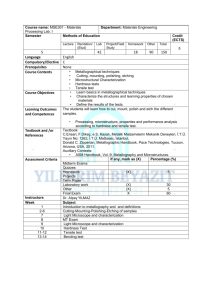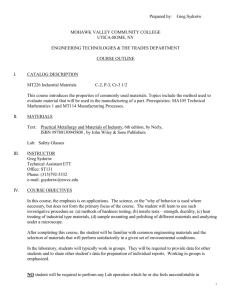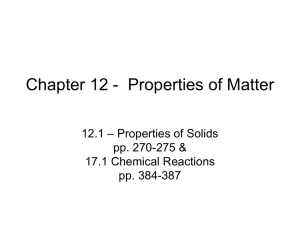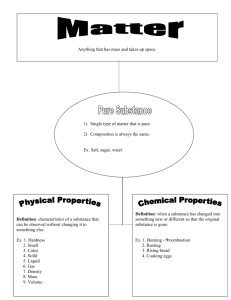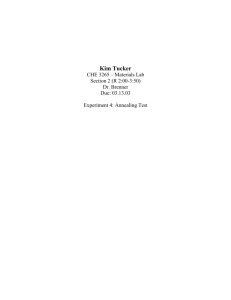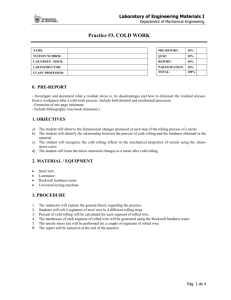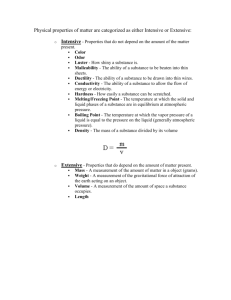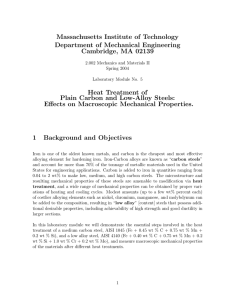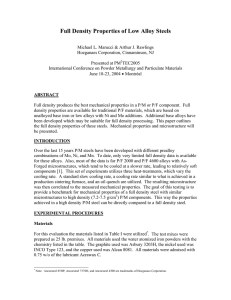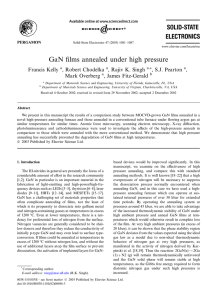ME 302 -- Mechanical Engineering Laboratory I
advertisement
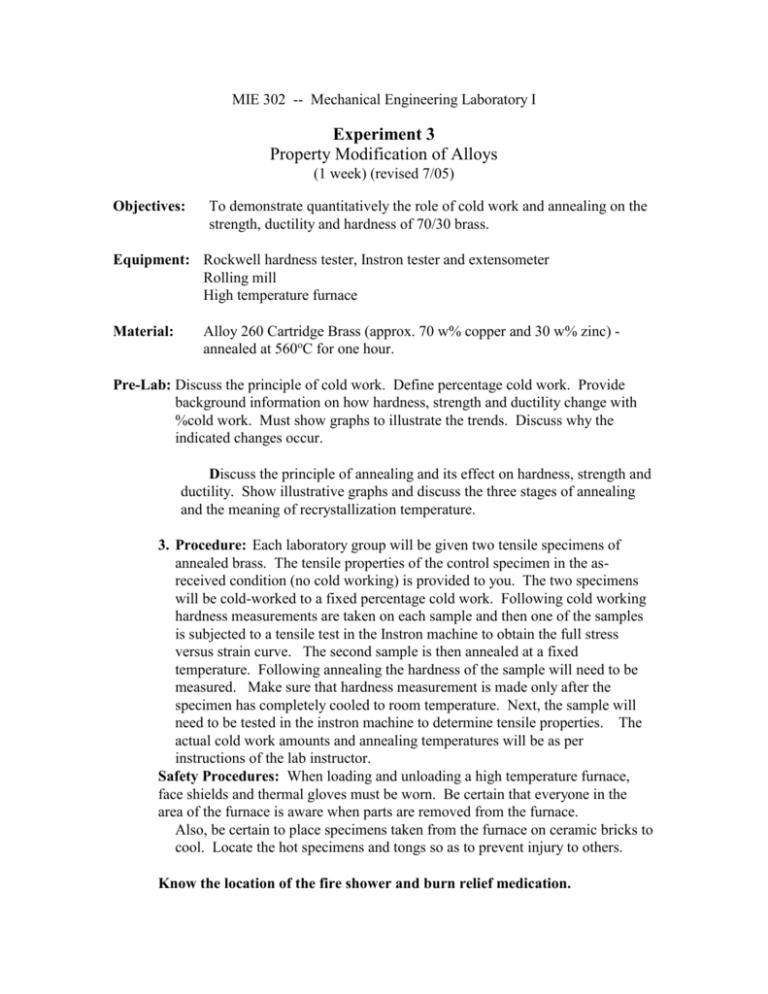
MIE 302 -- Mechanical Engineering Laboratory I Experiment 3 Property Modification of Alloys (1 week) (revised 7/05) Objectives: To demonstrate quantitatively the role of cold work and annealing on the strength, ductility and hardness of 70/30 brass. Equipment: Rockwell hardness tester, Instron tester and extensometer Rolling mill High temperature furnace Material: Alloy 260 Cartridge Brass (approx. 70 w% copper and 30 w% zinc) annealed at 560oC for one hour. Pre-Lab: Discuss the principle of cold work. Define percentage cold work. Provide background information on how hardness, strength and ductility change with %cold work. Must show graphs to illustrate the trends. Discuss why the indicated changes occur. Discuss the principle of annealing and its effect on hardness, strength and ductility. Show illustrative graphs and discuss the three stages of annealing and the meaning of recrystallization temperature. 3. Procedure: Each laboratory group will be given two tensile specimens of annealed brass. The tensile properties of the control specimen in the asreceived condition (no cold working) is provided to you. The two specimens will be cold-worked to a fixed percentage cold work. Following cold working hardness measurements are taken on each sample and then one of the samples is subjected to a tensile test in the Instron machine to obtain the full stress versus strain curve. The second sample is then annealed at a fixed temperature. Following annealing the hardness of the sample will need to be measured. Make sure that hardness measurement is made only after the specimen has completely cooled to room temperature. Next, the sample will need to be tested in the instron machine to determine tensile properties. The actual cold work amounts and annealing temperatures will be as per instructions of the lab instructor. Safety Procedures: When loading and unloading a high temperature furnace, face shields and thermal gloves must be worn. Be certain that everyone in the area of the furnace is aware when parts are removed from the furnace. Also, be certain to place specimens taken from the furnace on ceramic bricks to cool. Locate the hot specimens and tongs so as to prevent injury to others. Know the location of the fire shower and burn relief medication. Report: Report to include: a) Graphs showing hardness and tensile properties (yield strength, UTS, ductility and modulus) on the y-axis as a function of percentage coldwork with y- error bars indicated. Discuss the trend and provide reasons. b) Graphs showing the hardness and tensile properties with annealing temperature. Discuss trends in terms of recovery, recrystallization and grain growth processes. Mark on the graph the regions of recovery, recrystallization and of grain growth. c) Specimen drawing with dimensions and drawing of rolling mill and furnace used. Photograph may be used for rolling mill and furnace. d) Table showing all of the information contained in the figures of part a and b above.
